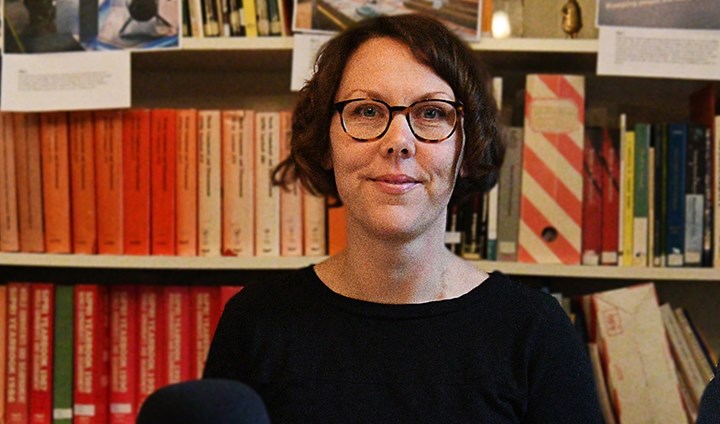Housewives’ domestic work supports civil war

Jenny Hedström, Örebro University.
Women send food to the front lines, sew uniforms and give birth to children who will become soldiers. Örebro researcher Jenny Hedström’s study has been funded with SEK 3.1 million by the Swedish Research Council. Her research will investigate the role of women’s domestic work in protracted wars, focusing on Myanmar
“Women provide support in areas where public funds if they exist at all, are primarily spent on building and maintaining military power, rather than on the general welfare. When society withdraws, the women organise themselves in groups, and their work becomes central to maintaining warfare. However, that is something society rarely talks about,” says Jenny Hedström.
Jenny Hedström is a researcher in gender studies at Örebro University and has worked with women’s rights and democracy in Myanmar for many years. In her doctoral thesis, she studied the connection between civil war and households.
The country has the world's longest civil war in which the differences between the Myanma majority group and the various ethnic minority groups have tarnished the country’s development since independence from the British in 1948.
Peace and reform process
Much has improved since 2011 – when the ongoing peace and reform process began. Until then, the country was completely closed and mostly without banks, electricity and cars. International organisations are now in place, and in cities, there is the internet, shops, universities and cafés.
"Still, the country has a chaotic security situation, with their borders to China and Thailand controlled by ethnic rebel armies," says Jenny Hedström.
She will examine how and why civil war like this continues, despite the superior capacity of the state military and whether households and the domestic work women do, might be the answer.
Three different conflict areas
The project is a qualitative case study based on a combination of interviews and ethnographic research. To enable comparisons between different cases, the project will collect data in three different conflict areas in Myanmar, where three different non-governmental armed groups control territories varying in size.
The aim is to broaden the current theoretical and empirical analysis of how conflicts, militarisation and civil wars can be understood. With a feminist political economy as its starting point, the project will theorise the role of the household in enabling long-running conflicts and open up for new perspectives.
Text: Linda Harradine
Photo: Private
Translation: Jerry Gray
